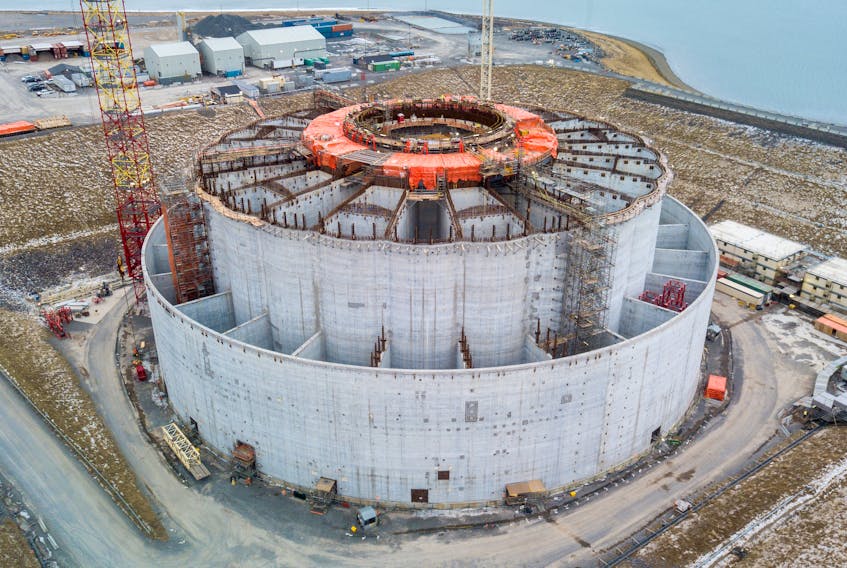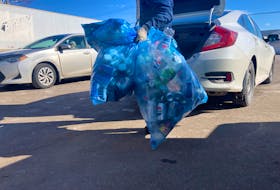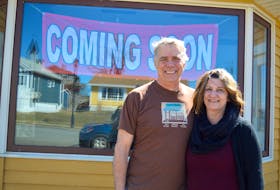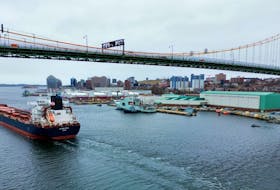Newfoundland and Labrador's oil and gas economy was a mess in 2020.
Husky Energy first shut down West White Rose construction activity temporarily, then suspend the project indefinitely. As of Jan. 1, all Husky assets and staff will become part of Cenovus Energy, a company that previously had no stake in the offshore oil sector.
Drilling at Hibernia was put on hold. Work to extend the life of Suncor's Terra Nova floating production, storage and offloading vessel is overdue, and it has not produced oil for a year.
The China National Offshore Oil Corporation drilling program in the Flemish Pass was delayed. BP Canada Energy Group ULC was the lone successful bidder in the latest auction of offshore oil exploration opportunities, committing to $27 million in exploration work. In 2018, successful bids for exploration rights totaled $1.3 billion.
And the future of Newfoundland and Labrador's lone oil refinery is in jeopardy. NARL Refining Ltd.'s Come By Chance refinery shut down in mid-March as demand for oil plummeted worldwide in response to the COVID-19 pandemic. A deal to sell the company and its assets to Irving fell through, and NARL’s owner Silverpeak is patiently waiting for the best deal, having rejected publicly one recent offer from Origin International.

Thousands of jobs
Charlene Johnson, president of Newfoundland and Labrador Oil and Gas Industries Association (Noia), says she hated seeing thousands of people in the province lose their jobs.
"I have heard heartbreaking stories from people who lost a well-paying job and remain unsure of what lies ahead for their family," she told The Telegram. "Christmas looks very different this year for many and I fear we have already lost, and will continue to lose, immensely talented people who may not return to our industry or our province."
Noia lost 60 member companies over the last few months. Johnson said they could not make it through the pandemic.
"It is likely that the situation could get worse before it gets better," she said. "The impact upon the provincial economy is massive and this will hurt our entire province for some time. I really fear the effects of what is happening will be felt months, if not years, down the road. There is a lag effect that is going to occur and have a significant impact on our communities due to lost wages, lost taxes, and lost community involvement and investment."

Paul Barnes, Atlantic Canada and Arctic director with the Canadian Association of Petroleum Producers, said there’s a lot of uncertainty among operators about what the future holds. However, there are some positive indicators for what lies ahead.
"The price of oil is starting to increase, and we see the demand for the product starting to increase in places around the world, which will tend to indicate that the price will continue to rise throughout 2021," he said. "And Newfoundland has some very good geology when it comes to hydrocarbons that are found in the ground here ... There's companies that are still here that still plan to do exploration, even though it may not be until 2022. There is a degree of optimism starting to form."
Crucial six months
Barnes expects the next six months will say a lot about the short-term future of the sector, including whether Cenovus Energy will try to resume construction on the West White Rose project in 2022. He believes Equinor will make a decision on its Bay du Nord project and anticipates companies with exploration opportunities will decide whether to secure rates to explore in 2022 or wait until 2023.
"Those decisions have to be made within the next several months, and if you get some momentum happening that way — some of these positive decisions and the price of oil continues to increase, the population of the world starting to get vaccinated — then we'll start to see the industry turn around and more activity, more employment starting to occur."
The $320-million Oil and Gas Industry Recovery Assistance Fund recently buoyed the West White Rose and Hibernia projects to create almost 480 jobs that otherwise wouldn't exist. Industry, Energy and Technology Minister Andrew Parsons said it's working well as leverage for companies to make investments in their projects or preserve them, while also keeping people employed. Otherwise, these residents may find themselves looking to other provinces for work.
"If you had listened to some people — let's just throw money at the problem, no analysis, no looking into what we're doing here — and the money would have been gone and you would have got nothing from it," Parsons said. "This is not 100 per cent investment from the province and feds. This is basically 50-50. It is an investment along with these operators, who in many cases would be happy to park the capital. I think it has been effective."
Barnes and Johnson agree the fund is helpful.
"The $320 million dollars provided by the Government of Canada with $32 million set aside for the supply and service sector is positive," Johnson said. "However, we need to allocate that money as soon as possible, get people back to work, and also leverage it for additional investment in the industry."
Barnes expects the bulk of the fund will be allocated within the first quarter of 2021, but added as a whole, it's not enough to move any stalled projects forward.
"But it certainly would help," he added, noting it allows Husky-Cenovus to at least keep the lights on as it looks toward 2022.
"I'm sure the other amounts that the other producers will get will be roughly the same — just enough to keep some work active and keep some focus on trying to get the projects up and going. But it will certainly take a lot more than $320 million to make those projects go."

The refinery
As for the Come By Chance refinery, which remains in warm-idle mode, Parsons understands it's a hard market in general for oil refineries. He is optimistic and hopeful about the refinery's future given multiple parties are inquiring about NARL.
"Right now, I do think we're moving towards a positive outcome," he said. "But it's not our asset to sell. We can't force the owner to do certain things. Our main concern has been two-fold ... There's a lot of workers there. It has a huge impact on our gross domestic product. As well as the supply. It's our only refinery. I don't like the idea of us not having that asset."

On that front, Parsons said the province has been watching closely what's happening with countries working to ensure supply stability.
"We do not want to see a tank farm," the minister said. "That's not where our head is at all. Where we want to see this is a refinery in 2021 that will move towards start-up again rather than shut-down."
Marc Amons, a senior analyst who tracks the North American refining market for research firm Wood Mackenzie, said the economics of oil refining remains challenging.
"It still all comes down to the level of demand for refined products," he said. While diesel demand has recovered somewhat, gasoline and jet fuel demand remains well-below pre-pandemic levels.
Looking ahead to 2021, Amons expects the outlook for refining will improve, particularly towards the second-half of the year as more people receive the coronavirus vaccine. With that would come increased business travel and leisure activities, leading to increased demand for refined oil products. This too would make refineries more attractive to potential buyers, though Amons cautions there are several sellers in the market. That would drag down the price a seller can demand.
"It's still a very challenging market for refineries looking to divest an asset, but the market environment should be improving to some extent through 2021."
Andrew Robinson is a business reporter in St. John's.









